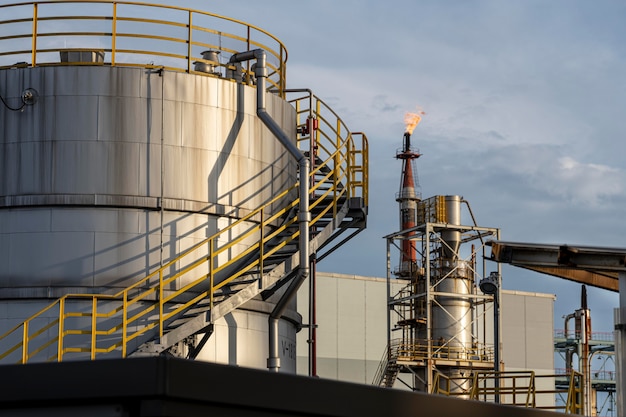
In a significant overhaul of its petroleum supply chain, Uganda has designated the Uganda National Oil Company (UNOC) as the sole importer of petroleum products, a move aimed at reducing fuel prices across the nation. The first shipment under this new policy is scheduled to arrive in June 2024.
Previously, Uganda relied on multiple importers to meet its substantial fuel needs, importing 90% of its refined petroleum products through the Port of Mombasa. However, UNOC will directly import an annual volume of 2.5 billion liters of essential fuels such as petrol, diesel, jet-A1, and kerosene, and will then distribute them to licensed oil marketing companies (OMCs) within the country.
This policy shift comes as part of a broader agreement facilitated by the governments of Uganda and Kenya, alongside a strategic partnership with the Kenya Pipeline Company. By centralizing imports, UNOC aims to streamline the supply process, and, as a result, reduce the logistics and tax expenses that have traditionally burdened the end consumer with higher fuel prices.
Industry experts predict that this move could significantly impact fuel pricing, potentially lowering pump prices and making transportation and goods more affordable for Ugandans. The decision aligns with similar strategies in other countries where government-controlled importation has led to more stabilized and often reduced fuel costs.
The sole importation mandate is not just a fiscal measure but also a strategic one, given Uganda's growing energy needs amidst an expanding economy and population. By controlling the entire supply chain from importation to distribution, UNOC not only ensures a steady supply of petroleum products but also positions itself as a central player in the regional energy market.
The transition to sole importation by UNOC also reflects Uganda's broader ambitions to enhance its energy independence and regulatory control over critical resources. This shift is particularly significant in light of ongoing projects to develop domestic oil production capabilities, including the anticipated operation of Uganda's first oil refinery in Hoima, expected to be operational by the end of the decade. By consolidating importation and future production under state control, Uganda aims to create a more integrated and resilient energy sector.
Moreover, this move could have far-reaching implications for regional trade dynamics, particularly with Kenya, which has long been a critical transit hub for Uganda's petroleum imports. The new arrangement may prompt adjustments in bilateral trade agreements and logistics operations, potentially leading to enhanced cooperation or competition within the East African Community (EAC). As such, economic analysts will be closely monitoring the rollout of this policy to assess its impact on intra-regional relations and economic integration within the EAC.
The anticipation surrounding the arrival of the first vessel in June 2024 is high, with stakeholders from various sectors keen to see how this new approach will play out in practical terms. If successful, this could serve as a model for other nations struggling with similar challenges in managing their energy supplies efficiently and cost-effectively.
As Uganda takes this bold step towards transforming its petroleum sector, the implications for its economy and for the East African region are profound. The success or failure of this initiative will likely influence future policy decisions not only in Uganda but potentially in neighboring countries looking to optimize their energy strategies.

















